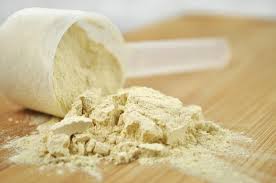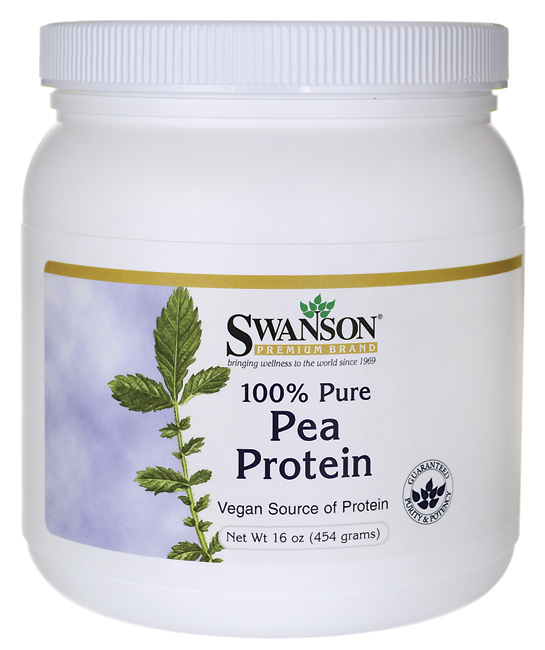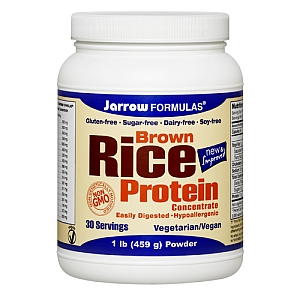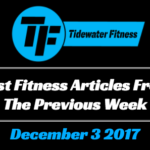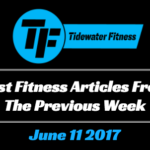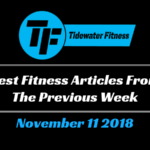Supplements are often overrated. They are marketed in really shady ways, and sometimes provide you no additional benefit. And yet supplement sales hit $11.5 billion dollars in 2012.
That’s pretty remarkable. But it begs the question, why do people pay for supplements?
I believe there are two answers to this question. The first is that they actually do work. I don’t believe all supplements are bad. There are some that fill a void if you don’t eat a enough of a certain food or nutrient.
Then there’s the other side of the coin. This is the side where people purchase supplements for a quick fix. I mean, how many times have you seen an infomercial on the newest fat loss supplement?
Many are looking for a solution where they don’t have to anything but take a pill. Unfortunately it doesn’t work like that. And those are the people who are being scammed out of their hard earned money.
Today though, I want to talk about a supplement that I believe is worth taking. It’s protein powder, as if you couldn’t have guessed from the title 🙂
First, I want to quickly cover what types of protein powder you can buy. Then I want to highlight some research done to show you how effective it can be. So let’s dive right in!
When buying protein powder, you may come across words like concentrate or isolate. You may even see the words complete or incomplete protein. So, what do these mean?
Concentrate– Any powder that says this means nutrients that aren’t protein were removed. However, you end up with a product that is roughly 70-85% actual protein. The rest is made from carbohydrates, fat, and other filler ingredients.
Isolate– This powder is more pure than the concentrate. It contains about 95% protein. The good news is there are less filler ingredients. The bad news is it’s a little more expensive.
Complete protein– Our bodies need 22 different types of amino acids to function well. This is what protein is made of. There are 9 essential amino acids that our bodies cannot naturally produce. We can only get these from food. A complete protein has all 9 essential amino acids. Complete protein sources include things like meat, fish, dairy, and some whole grains.
Incomplete protein– These are the protein sources that do not contain all the essential amino acids. This basically means you would need to eat a variety of foods to ensure you are getting all the essential aminos. Incomplete sources of protein include items like nuts, vegetables, and grains.
Now let’s talk about some of the most popular options.
1. Whey:
Whey is derived from milk and is quickly absorbed by your body. It contains lactose so for those that are lactose intolerant this wouldn’t be a good choice. It is a complete protein.
2. Casein:
Like whey, casein protein is also derived from milk. It takes a little longer to digest so it may keep you satisfied for longer. It’s also a complete protein.
3. Egg white:
This protein obviously comes from eggs. Just like natural eggs, its loaded with vitamins and minerals. It’s a complete protein.
4. Soy:
This protein powder is made from soy beans. Although it is a plant, it actually contains all essential amino acids. Soy is very cheap though. It is often modified and can negatively affect your hormone levels. I don’t recommend using this type of powder.
5. Pea:
This is a plant based protein. If you are a vegetarian this is a great option. It is easy to digest but it is an incomplete protein.
6. Rice:
This protein is derived from rice. It’s also easy to digest and contains some good carbohydrates. Another great option if you are a vegetarian. It is an incomplete protein though.
Now that you know some popular sources lets look at some of the research regarding protein powder.
One study looked at the effect whey protein powder had on body fat. They had two groups. One group consumed protein powder twice per day, while the other had an isocaloric drink twice per day for 12 weeks. The researchers also lowered the daily caloric intake of each group by 500.
The results showed the protein powder group lost more body fat and retained more lean muscle mass than the other group (1). This is very important because many people lose muscle mass when they lose weight.
Even though they lose weight, their metabolism slows from lost muscle mass. This, in turn, decreases the amount of calories burned during the day, and it will be much easier for them to gain the weight back.
Another team of researchers looked at 14 different studies using protein powder to determine it’s effect on lean body mass, fat mass, and body weight. Of those 14, five studies looked at using protein powder as a replacement for other calories.
An example would be drinking a protein drink instead of eating an “unhealthy” snack. They found that in each study, body weight and body fat were significantly reduced in the duration of the experiment (2).
Another study looked at how whey protein and resistance training affected female athletes. They discovered that when both were combined it promoted fat loss and lean muscle preservation (3). Also of interest, the authors highlighted the fact other studies show whey protein promotes muscle growth in men and women when compared to soy.
As you can see protein powder can be of benefit. Some of the studies I highlighted were done using whey protein. However, that doesn’t mean it will be the best for you.
Most people want to know which one to get. Unfortunately I can’t answer that. Protein powder needs to be experimented with to find out which one provides you with the best results.
When you select one, try it for about of month and see what changes take place. What’s most important is that you get all of the essential amino acids.
Any of the complete protein options I mentioned will provide those. If you select an incomplete protein powder, be sure to include a variety of foods in your diet to ensure optimal nutrition.
Remember, supplements should never be used in place of real food. You need to be eating protein sources regularly. If you are doing this and find you still aren’t getting enough protein, then a supplement would most likely be of benefit.
References:
1. Frestedt, J.L. et al. A whey-protein supplement increases fat loss and spares lean muscle in obese subjects: a randomized human clinical study. Nutr Metab (Lond). 2008; 5: 8.
2. Miller, P.E. et al. Effects of whey protein and resistance exercise on body composition: a meta-analysis of randomized controlled trials. J Am Coll Nutr. 2014;33(2):163-75.
3. Josse, A.R. et al. Impact of milk consumption and resistance training on body composition of female athletes. Med Sport Sci. 2012;59:94-103.
Photo credit:
1. http://tobyamidornutrition.com/2014/04/protein-powders-whats-the-scoop/
2. http://www.swansonvitamins.com/swanson-premium-pea-protein-pure-16-oz-454-grams-pwdr
3. http://www.gnc.com/Jarrow-Formulas-Brown-Rice-Protein-Concentrate/product.jsp?productId=3629979

